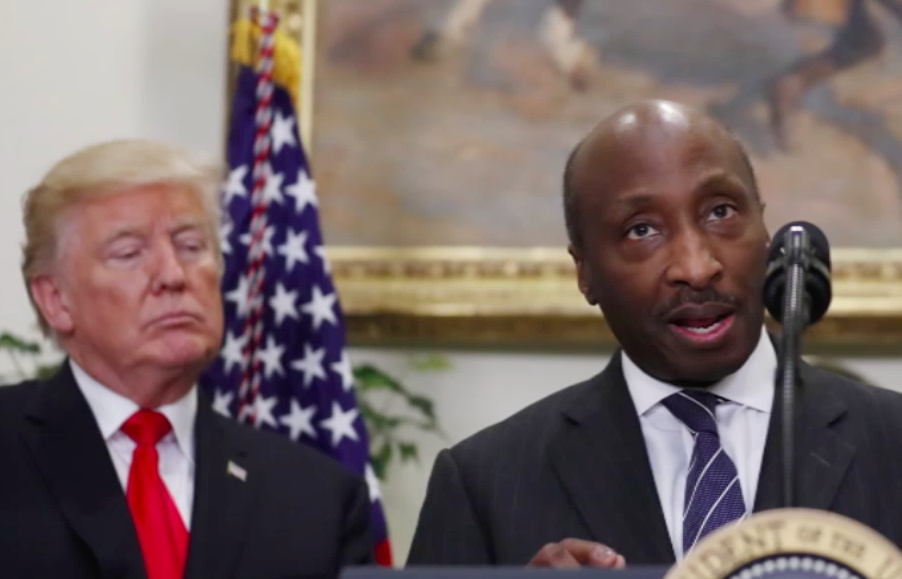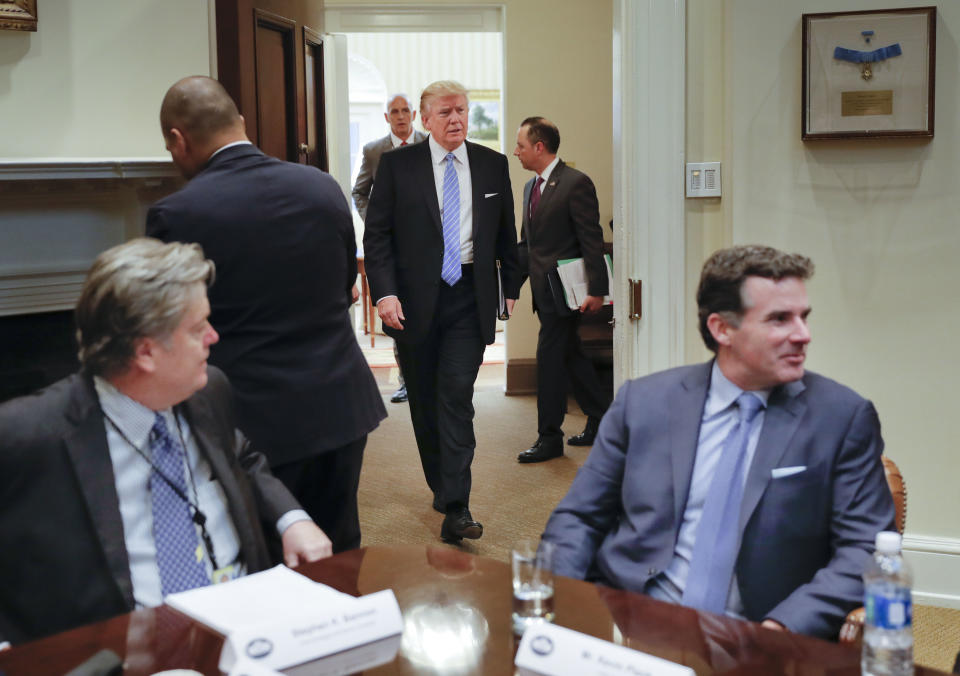Why CEOs should stand up to Trump
Merck (MRK) CEO Ken Frazier resigned in protest from the White House American Manufacturing Council on Monday, citing President Donald Trump’s failure to immediately and clearly reject the bigotry on display in Charlottesville, Virginia over the weekend. Hours later, Under Armour CEO Kevin Plank and Intel CEO Brian Krzanich followed suit, exposing themselves to the ire of a president who doesn’t hesitate to retaliate. This ultimately sparked more widespread departures from CEOs and an ultimate disillusionment of the council along with the Strategy & Policy Forum on Wednesday.

CEOs have a responsibility to maximize value for shareholders, and that responsibility arguably includes not attracting attention that could hinder their ability to conduct business. But when it comes to politics and social issues, historical evidence shows a potential benefit of speaking up.
In fact, decisions by CEOs to embrace progressive political opinions have helped stock prices, according to a memo from Edward Reilly, CEO of the Strategic Communications segment FTI consulting.
“Well-articulated social activism can still be a risk—but it can also be a competitive advantage,” according to Reilly. “This increased scrutiny of CEOs and their management teams by investors and customers, and the greater transparency expected by all stakeholders, has made leadership’s values and sensibilities a major factor in where consumers take their dollars.”
A 2016 Harvard Business School study found that Apple (AAPL) consumers had a higher intent to purchase products when they had been exposed to CEO Tim Cook’s activism, which included speaking out against Indiana’s Religious Freedom Restoration Act.
“Tim Cook isn’t just standing up for what he believes in – he’s speaking to the values of the company he leads,” Reilly said.

“Today, CEOs are taking on a greater role in framing public discourse, and this has expanded the CEO’s role from that of guardian of the business and shareholder value to a figure who helps define the company’s brand, culture and values,” Reilly said.
Reilly added that millennials—a key customer group for many companies—especially care about companies’ values.
A study conducted by FTI consulting in 2014 found that investors, policymakers, and the general public wanted CEOs to play an active role in national policy debates.
“This is the consumer as social activist, and it’s a wave that has not yet crested,” Reilly said.
In other words, despite the looming threat of retaliation from the president, particularly after his retaliatory tweet to Frazier on Monday, taking a strong stand on progressive issues could actually work in companies’ favor.
Some signs of activism across industries
While there has been limited direct reaction to Trump’s rhetoric and policy proposals, CEOs across industries have started to take on more public roles, according to Reilly.
“Why is this happening now? You might say it’s the democratization of markets. You could say it’s the connectivity brought on by the social media revolution, but whatever the root cause, stakeholders today have more information about and ability to engage with (or about) companies and their leaders than ever before,” according to Reilly.
More than 200 companies signed a letter from the Human Rights Campaign opposing North Carolina’s HB2, known as the “bathroom bill,” for its policy dictating which restrooms transgender people should use.
“Even 10 years ago the idea of the CEO of a $50 billion-plus company commending a colleague for his focus on ‘noneconomic issues’ would be far outside the norm,” according to Reilly
Allstate’s (ALL) Tom Wilson said “shareholders must get a good return, but at the same time corporations must work to be a force for good in society.”
Starbucks’ (SBUX) Howard Schultz has been outspoken on a number of social issues, including advocating for tougher gun control regulation and addressing race issues. He has been a pioneer of CEO social activism, telling Yahoo Finance that he believes an emotional connection with the consumer about higher values will also help business.

“I think the currency that matters most is your values and the trust with the consumer,” Schultz said. “And I think that’s what we’ve tried to do. If you look at all the things we’ve done around social impact.”
He has some clout, given that the stock is up over 19,000% since its IPO in 1992.
On the other hand, embracing Trump has proven to be a risk as well.
Following the comments at the beginning of this year by Under Armour’s (UAA) Ken Plank that he believed Trump was a “real asset” to the country, customers and analysts took notice and turned their backs on the company. Plank even was compelled to issue a clarifying press release embracing progressive values, following backlash from his pro-Trump comments.
Plank’s resignation from Trump’s council on Monday is a major turn.
“Under Armour engages in innovation and sports, not politics,” he said. “I love our country and our company and will continue to focus my efforts on inspiring every person that they can do anything through the power of sport which promotes unity, diversity and inclusion.”
—
Nicole Sinclair is markets correspondent at Yahoo Finance
Please also see:
Robert Shiller and Jeremy Siegel tell us what they think of each other’s market forecasts
Jeremy Siegel and Robert Shiller tell us what’s next for the economy
Why Nordstrom is beating all of its department store competitors
Stocks have done worse ahead of a conflict than ‘when the bombs started to fall’
